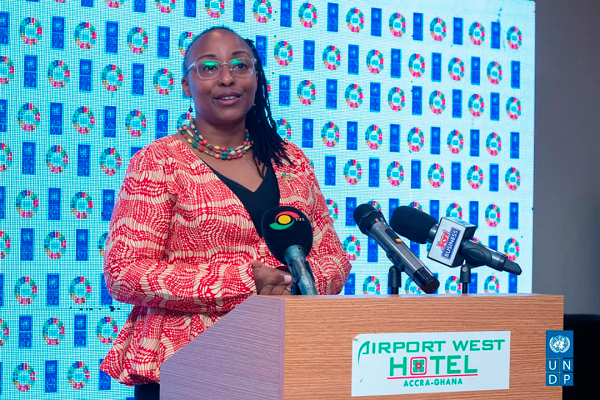
Ghana needs $522b for SDGs effort
The United Nations Development Programme (UNDP) has disclosed that Ghana needs to fill a $423 billion funding gap to shore up efforts to achieve the Sustainable Development Goals (SDGs) by 2030.
The funding gap, equivalent to $43.6 billion per year, is a fraction of the total $522.3 billon required to facilitate the attainment of the goals.
The UNDP Resident Representive in Ghana, Dr Angela Lusigi, who made this known last Tuesday, said addressing the funding gap required effective partnership and resource mobilisation plans that would engage diverse actors, including the private sector and diaspora investors.
She stressed that development partners needed effective collaboration on how to leverage on the potential of resilient national institutions and sub-national actors to support Ghana’s transformation agenda.
"As the SDGs cannot be championed by one institution alone, it would be useful to reflect on the extent of inclusion of community, local, regional and national actors in the public and private spheres,” she said.
VNR consultative forum
Dr Lusigi was speaking at a consultative forum on the draft report on Ghana’s 2022 voluntary national review, a document that details the country’s progress towards achieving the SDGs, which was organised by the National Development Planning Commission (NDPC).
The review is an important part of Ghana’s strategy to achieve the SDGs that periodically provides data on key indicators that allow the assessment of progress and challenges.
The 2022 review delved into efforts being made to close the gaps and accelerate progress on attaining the SDGs.
Although the report covered Ghana’s commitment to report on all the 17 SDGs, it focused more on SDGs 4 (quality education); 5 (gender equality); 14 (life below water); 15 (life on land); and 17 (partnerships for the SDGs).
Dr Lusigi commended the government for showing leadership in undertaking the review, adding that it was a demonstration of the country’s continued commitment to advancing the achievement of the SDGs by 2030.
She underscored the need for the actors in the SDG space to pay particular attention to SDG 17, saying partnership was a key enabler for all the other goals.
World Bank support
The World Bank Officer in charge of Human Development, Patrick Mullen, said the bank remained committed to support Ghana’s efforts to achieve the SDGs through its partnership programmes.
For instance, he said, the World Bank Group had recently adopted a four-year country partnership framework (CPF) to support the government's efforts towards achieving the SDGs by 2030.
Mr Mullen said the core target of the CPF was to "improve equitable access to quality education, improve accessibility and quality of primary health care, and expand services for undeserved urban populations".
He observed that in working on those targets, the government would be more prudent and flexible in delivering inclusive services.
"The government's response, in a constrained fiscal context, would need to address many competing priorities, while protecting the gains made in economic development, human capital and poverty reduction," he added.
Decentralised action
The Director-General of the NDPC, Dr Kodjo Esseim Mensah-Abrampa, stressed that even as efforts were being made to mobilise resources to implement policies that would help to achieve the SDGs, it was equally important to be prudent in implementing activities to avoid duplication of roles and to check wastage.
He noted, for instance, that there was the need for stakeholders and institutions to collaborate more in terms of data collection to guard against duplication of actions.
He further observed that metropolitan, municipal and district assemblies ought to be the coordinating points for decentralised actions towards achieving the SDGs.
Dr Mensah-Abrampa emphasised that partnership at the local level, involving chiefs, traditional rulers, civil society organisations, nongovernmental organisations and state institutions was the best way forward to accelerate action towards attaining the SDGs.
